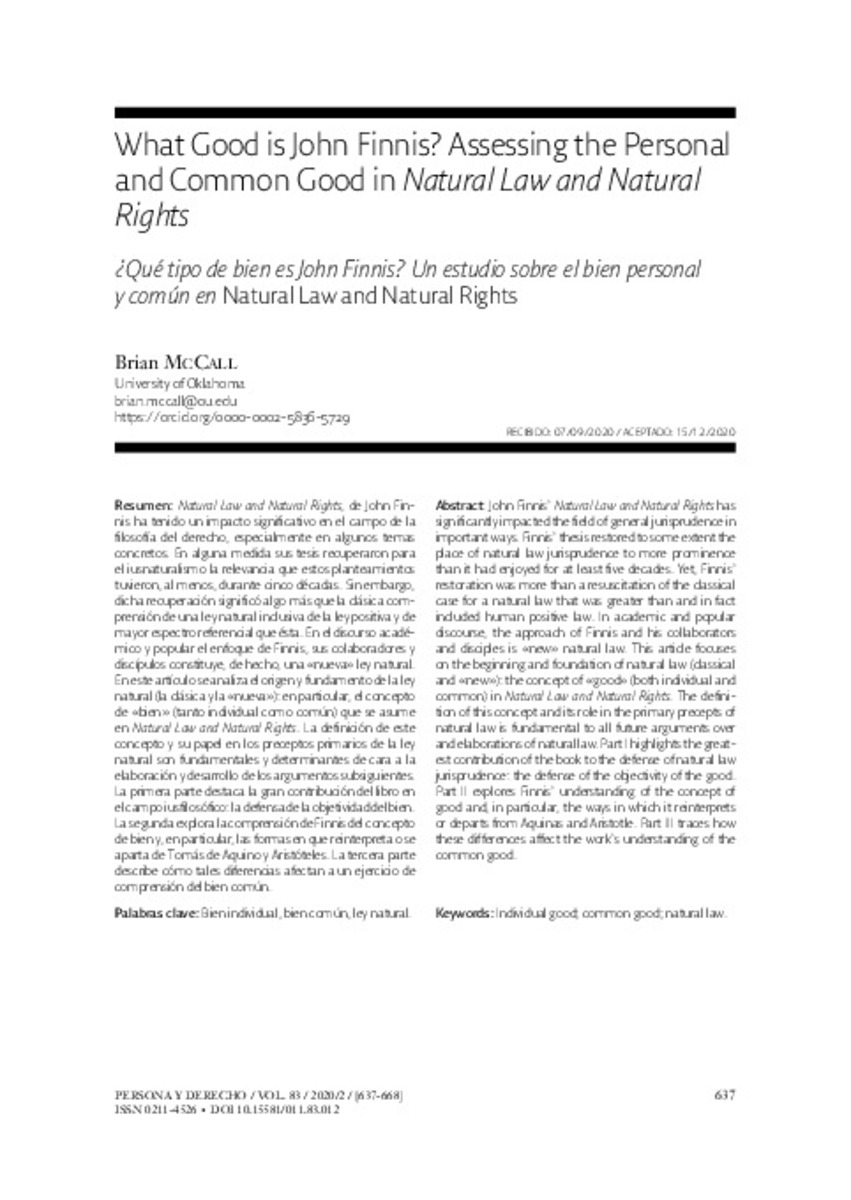¿Qué tipo de bien es John Finnis? Un estudio sobre el bien personal y común en «Natural Law and Natural Rights»
Other Titles:
What Good is John Finnis? Assessing the Personal and Common Good in «Natural Law and Natural Rights»
Keywords:
Bien individual
bien común
ley natural
Publisher:
Servicio de Publicaciones de la Universidad de Navarra
Citation:
McCall, B. (Brian). "¿Qué tipo de bien es John Finnis? Un estudio sobre el bien personal y común en «Natural Law and Natural Rights»". Revista Persona y Derecho. 83, 2020, 637 - 668
Statistics and impact
0 citas en

0 citas en

Items in Dadun are protected by copyright, with all rights reserved, unless otherwise indicated.








